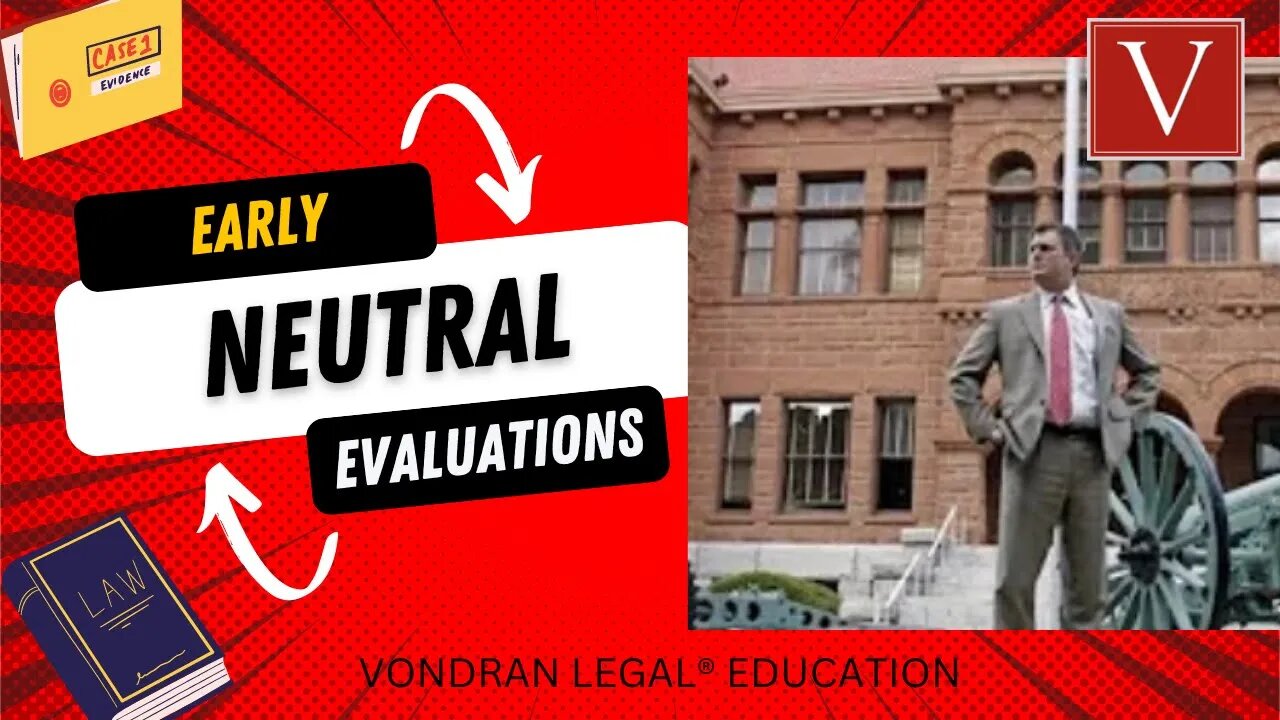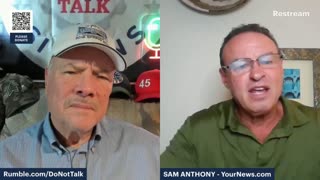Premium Only Content

How to prepare for a ENE early neutral evaluation in federal court
http://www.VondranLegal.com - Hey YOU, yes YOU.....I want you as a friend and SUBSCRIBER!! This is the best legal education site on the web!
WHAT IS AN EARLY NEUTRAL EVALUATION?
In this episode of Litigation Whiteboard® Attorney Steve discusses the ENE - Early Neutral Evaluation
- that may arise by Federal Court Order, for example, in San Diego Federal District Court in TV signal piracy or copyright infringement cases.
Our law firm has defended companies (many small businesses and minority-owned restaurants, bars, creative individuals, artists, and other companies) against allegations of cable and satellite TV pay-per-view piracy from boxing matches broadcasting rights holders such as J&J Sports, G&G Closed Circuit Events, UCF, and Joe Hand Promotions. We have also handled many other copyright cases, including BitTorrent litigation. illegal file sharing, photo infringement, and DMCA / Fair Use cases.
Attorney Steve shares his top 7 tips for success and also discusses the "Five P's" (proper planning prevents poor performance).
According to the Nothern California District Court website:
Goals:
The goals of Early Neutral Evaluation (ENE) are to:
-enhance direct communication between the parties about their claims and supporting evidence,
provide an assessment of the merits of the case by a neutral expert,
-provide a “reality check” for clients and lawyers,
-identify and clarify the central issues in dispute,
-assist with discovery and motion planning or with an informal exchange of key information, and
-facilitate settlement discussions, when requested by the parties.
-ENE aims to position the case for early resolution by settlement, dispositive motion or trial. It may serve as a cost-effective substitute for formal discovery and pretrial motions. Although settlement is not the major goal of ENE, the process can lead to settlement.
The process is stated to be as follows:
Process:
-The evaluator, an experienced attorney with expertise in the case’s subject matter, hosts an informal meeting of clients and counsel at which the following occurs:
-each side — through counsel, clients or witnesses — presents the evidence and arguments supporting its case (without regard to the rules of evidence and without direct or cross-examination of witnesses),
-the evaluator identifies areas of agreement, clarifies and focuses the issues and encourages the parties to enter procedural and substantive stipulations.
-the evaluator writes an evaluation in private that includes:
an estimate, where feasible, of the likelihood of liability and the dollar range of damages;
an assessment of the relative strengths and weaknesses of each party’s case; and
the reasoning that supports these assessments.
-The evaluator offers to present the evaluation to the parties, who may then ask either to hear the evaluation (which must be presented if any party requests it), or postpone hearing the evaluation to:
engage in settlement discussions facilitated by the evaluator, often in separate meetings with e ach side, or
conduct focused discovery or make additional disclosures.
-If settlement discussions do not occur or do not resolve the case, the evaluator may:
help the parties devise a plan for sharing additional information and/or conducting the key discovery that will expeditiously equip them to enter meaningful settlement discussions position the case for resolution by motion or trial,
help the parties realistically assess litigation costs, and/or
determine whether some form of follow up to the session would contribute to case development or settlement.
If you like this video make sure to SUBSCRIBE and feel free to share this video on your social media networks. All other rights are reserved.
-
 1:01:54
1:01:54
CharLee Simons Presents Do Not Talk
2 days agoCALIFORNIA'S DONE!
52.3K25 -
 7:33
7:33
MudandMunitions
1 day agoUnboxing My FIRST Revolver! Smith & Wesson 442 .38 Special and What’s Coming Next for the Channel
74K8 -
 1:01:05
1:01:05
Trumpet Daily
1 day ago $9.07 earnedGermany Started Two World Wars and Now Wants Nuclear Weapons - Trumpet Daily | Mar. 7, 2025
59.9K75 -
 57:07
57:07
Stephen Gardner
1 day ago🚨BREAKING: Musk STUNS even Trump with LATEST FRAUD DISCOVERY!!
188K432 -
 2:26:47
2:26:47
FreshandFit
19 hours agoRatchet Chick Gets Kicked Out "Gracefully" For THIS...
182K196 -
 2:05:17
2:05:17
TimcastIRL
22 hours agoDemocrat ACTBLUE In CHAOS, Theories Over DOGE Cutting SLUSH FUND Go Wild w/Hotep Jesus | Timcast IRL
318K284 -
 1:11:43
1:11:43
Roseanne Barr
1 day ago $74.11 earned"They are all Monsters" | The Roseanne Barr Podcast #89
163K195 -
 9:26:16
9:26:16
Dr Disrespect
1 day ago🔴LIVE - DR DISRESPECT - WARZONE - PR ATTEMPTS
191K35 -
 3:48:30
3:48:30
Akademiks
22 hours agoDay 1/30. Lebron checks stephen a Smith. TOry Lanez talking CRAZY asf. Lil Ronnie K*Ilers Caught
124K13 -
 3:47:54
3:47:54
I_Came_With_Fire_Podcast
1 day agoDEPARTMENT OF EDUCATION AXED | GAZA ULTIMATUM
106K34